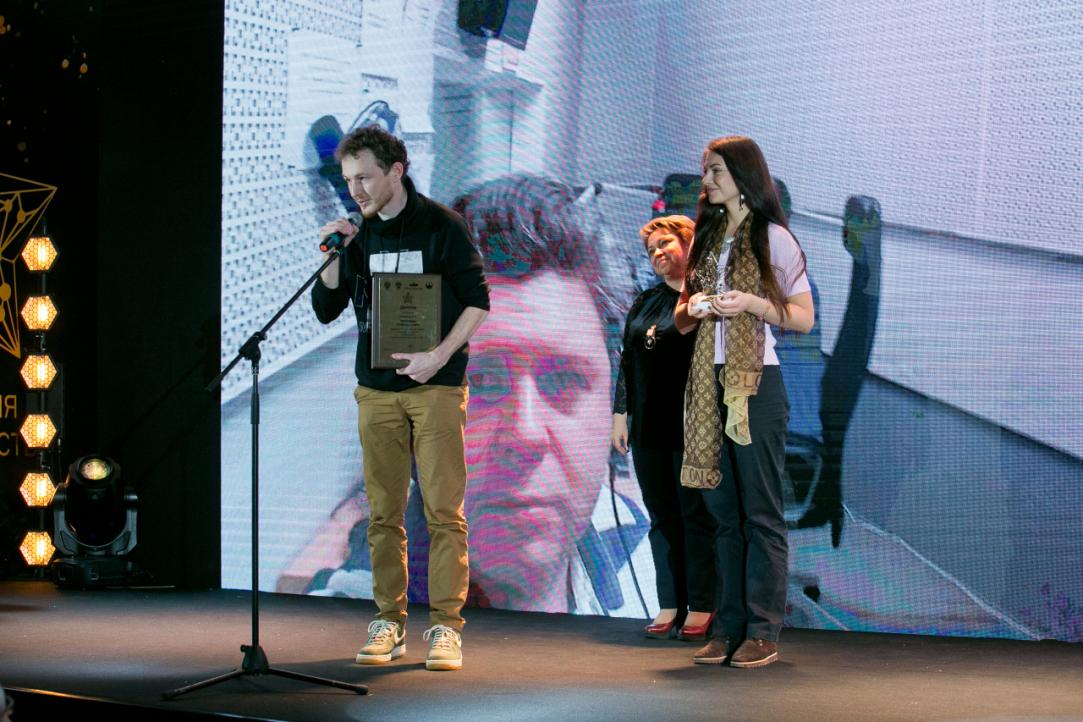HSE Student Awarded Russia’s Prize ‘For Loyalty to Science’ for Best Radio Programme

Vera Gribanova, a graduate student in the Master’s Programme 'Governance of Science, Technology and Innovation' runs a radio programme about great scientific achievements called ‘Scientific Light’ on the radio station ‘Moscow Talks’ (Govorit Moskva). This year her radio show has received the prestigious prize ‘For Loyalty to Science’, which is awarded annually by the Russian Ministry of Education and Science.
The prize ‘For Loyalty to Science’ is awarded annually to journalists, scientists, and organizers of educational projects that make a significant contribution to the popularization of science. The competition grants awards in 12 categories ranging from mass media to photographic work to individual initiatives. This year the jury—comprised of prominent scientists, columnists, and business officials—considered a total of 287 applications.
‘Scientific Light’ took this year’s prize in the ‘Best Radio Programme’ category. Gracing the Russian airwaves for three years now, Vera Gribanova’s ‘Scientific Light’ broadcasts every Saturday and is hosted by Andrey Bychkov and Vera Gribanova herself. Vera Girbanova holds a PhD in chemistry from Moscow State University and is now a second year graduate student in HSE’s Master’s Programme ‘Governance of Science, Technology and Innovation’. Andrey Bychkov, meanwhile, is the original visionary behind the programme.
‘In 2015 Andrey Bychkov had the idea of creating a radio programme,’ explains Vera Gribanova. ‘We know each other from our years in graduate school at MSU, where he used to work in the Faculty of Chemistry at the interdepartmental laboratory of numerical analysis. He organized a team and invited me to participate in the organization of episodes. The project initiative gained the support of the radio station’s editor in chief, Sergey Dorenko, and the first episode aired on 17 January 2016. I was then taken on as a second host. We provided a plan for the episodes in advance for the coming month with a lineup of the confirmed guests, and every year our programme was evaluated based on ratings and listener reviews.’
Every year about 35 live episodes air in addition to those that are prerecorded. Invited guests from various scientific organisations, institutes, and universities answer questions from the hosts and listeners about their scientific fields, which include medicine, biology, chemistry, physics, anthropology, and others. Thus, the programme covers a wide range of topics such as the discovery of gravitational waves, the development of CRISPR-Cas9 technologies, the big bang theory and cosmic inflation, new advances in treatment of cancer and multiple sclerosis, issues of climate change, great extinctions, and much more.
‘I am excited to have the opportunity to talk about what scientists and engineers do, bring their work into the mainstream, and to make scientific professions both more popular and prestigious,’ says Vera Gribanova. In fact, it motivated her to change her career path.
‘I decided to apply to HSE two weeks after my dissertation defence at MSU,’ says Very Gribanova. ‘I decided that I didn’t want to continue on in my narrow field; I was interested in more applied things, so I decided to pursue additional expertise in the field of project management, financing, and scientific management. And for me it was important not to just go into a management program but, given my scientific background, to gain relevant knowledge for application. HSE’s programme would allow me to learn ‘straight from the source’—from people working at the intersection of science, business, and innovation. The faculty is impressive; I looked forward to attending lectures by Leonid Gokhberg, Vasily Osmakov, Marina Gureva, Carol Scott Leonard, and others.’
Vera Gribanova sees herself in the future as a project manager in the tech industry. ‘For me, my work at the radio station is a very serious hobby, which helps me to maintain a close relationship with the scientific world, where I have many friends and acquaintances.’

